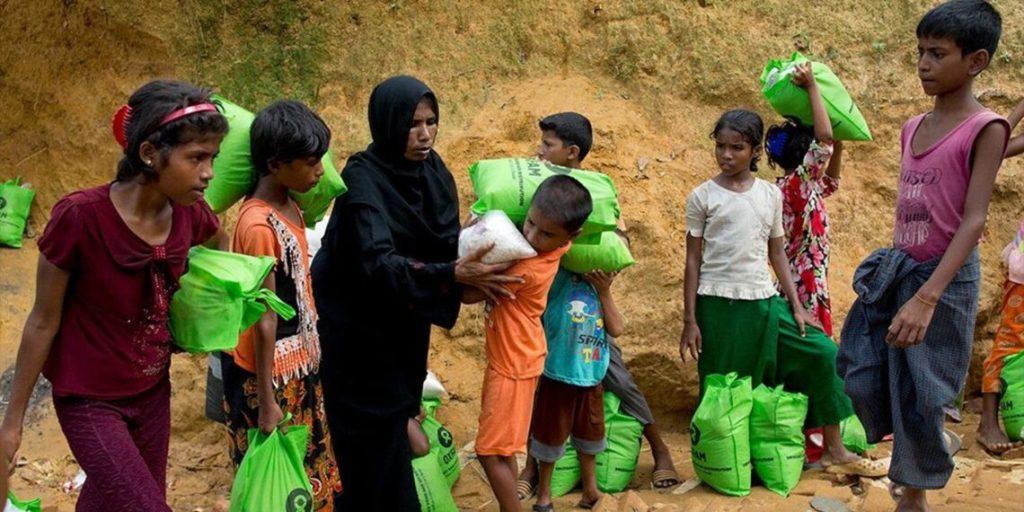India is closely watching with growing concern the rapidly deteriorating situation along the Bangladesh-Myanmar border, where a fresh surge in Rohingya refugee inflows and the collapse of Bangladesh’s so-called “humanitarian corridor” initiative may have serious implications for regional security and stability — especially in India’s northeastern states.
Over the past three days, 365 more Rohingya refugees have crossed into Bangladesh, fleeing renewed violence in Myanmar’s Rakhine State. According to Indian’s intelligence agencies working in Bangladesh, in Cox’s Bazar, where over 1.4 million Rohingya already live in 33 overcrowded camps, the new arrivals of Rohingyas has triggered serious concern.
The violence, allegedly perpetrated by the Arakan Army — a powerful ethnic armed group — has been concentrated in Buthidaung and Maungdaw. This further dismantles the credibility of the humanitarian corridor concept promoted by Bangladesh’s interim Yunus-led regime, which had claimed to facilitate safe repatriation of refugees.
India’s border under strain
India, sharing sensitive and porous borders with both Bangladesh and Myanmar, is directly impacted by this crisis. The 1,643-km India-Myanmar border, particularly through Mizoram and Manipur, has already seen a steady stream of illegal crossings by civilians fleeing ethnic conflict. Now, the 271-km Bangladesh-Myanmar border — reportedly fully controlled by the Arakan Army — adds another layer of complexity to the region’s fragile security.
From India’s perspective, the failure of governance in Myanmar and the futile initiative of repatriation suggest that the Rohingya issue may no longer be confined to Bangladesh. It risks spilling over into Indian territory, further straining border security and internal stability.
“Humanitarian Corridor” seen as a strategic farce
Former Bangladeshi diplomats and officials have labeled the humanitarian corridor proposal a “non-starter,” with many alleging it was a covert attempt to facilitate aid to the Arakan Army, with shadow support by the US, under the guise of refugee support. The corridor’s failure, they argue, exposes the lack of planning and consultation by the Yunus-led interim authority.
Bangladeshi bureaucrats suggest that alternative supply routes via the Teknaf land port or along the Naf River would have been more feasible — both now effectively under Arakan Army control. This renders the humanitarian corridor both impractical and irrelevant in the current security context.
With the Myanmar military junta rejecting Bangladesh’s recent proposal for Rohingya repatriation and the Arakan Army unwilling to accept any returns, regional diplomacy is at a standstill. For India, this means the long-term presence of a vulnerable and stateless population on its eastern neighbour’s periphery — a situation ripe for exploitation by insurgent groups, human traffickers and radical elements.
Indian security agencies have previously warned of Rohingya infiltration into Jammu, Hyderabad and other urban centers. The prospect of new waves of refugees — many with forged documents — raises the risk of internal destabilisation, particularly in the already sensitive northeast.
Political disarray in Bangladesh adds to the crisis
Adding to the regional uncertainty is the disjointed handling of the crisis by the interim Bangladeshi authority. The lack of consultation with political stakeholders — including the erswhil;e ruling party Awami League’s opposition Bangladesh Nationalist Party (BNP) — and inconsistent policy positions reflect weak internal coordination. Analysts fear this vacuum may further empower non-state actors like the Arakan Army, complicating regional efforts to restore stability.
Though BNP initially criticized the humanitarian corridor policy, analysts believe it will eventually support any solution aligned with international diplomacy. However, India’s priority remains preventing further destabilisation at its eastern borders.
Time for India to fortify Its borders
India must now prepare for an extended period of instability along its eastern frontiers. Strengthening border infrastructure, intelligence coordination and humanitarian diplomacy — especially with ASEAN and international bodies — will be critical. The Rohingya crisis, once viewed as Bangladesh’s challenge, has become a regional concern with direct national security implications for India.


